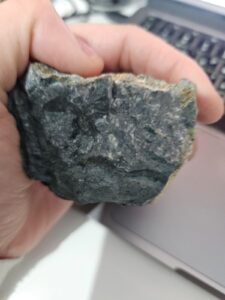As the United States heads into another election year, the global tin market is poised for significant changes, influenced by both domestic political dynamics and international economic factors. A potential Trump presidency could impact the tin market, especially with his trade policies and China’s economic struggles. The strategic importance of tin suppliers, such as Alphamin Resources (TSX.V AFM), is expected to increase as a more US-centric government will actively reduce US reliance on Chinese supply. This article explores tin market expectations in a politically charged environment and examines the West’s increasing interest in tin against the backdrop of China’s potential political crisis.
Economic and political landscape impacting the tin market
China, the world’s largest producer and consumer of tin, is facing economic challenges, evident in its recent property woes. Apart from its property market meltdown, China is facing declining consumer spending, and slowing economic growth that are exacerbating the situation. This economic turmoil has significant implications for global commodities, including tin. Concurrently, China’s political landscape is also in flux amidst growing internal and external pressures. Despite political pressure, China’s President, Xi Jinping was elected for another term which many would argue provides China at least with political stability.
Xi Jinping is known for his quest for long-term,“high-quality growth,” advancing high-tech industries including electric vehicles, solar panels and robotics, all industries that play into high tin demand. Consequently his re-election could bode well for the tin market.

Impact of a potential Trump presidency
Donald Trump’s potential return to the presidency could dramatically alter the trade landscape. Known for his aggressive trade policies, particularly against China, a Trump administration might intensify trade tensions, affecting the global supply chains for various commodities, including tin.
1. Trade Policies: Trump’s previous tenure saw the imposition of tariffs on Chinese goods, leading to a trade war that disrupted global markets. A similar approach in his potential second term could further strain the tin market, impacting both supply and prices. Tin, crucial for electronics and renewable technologies, could see price volatility as supply chains are disrupted.
2. Economic Policies: Trump’s focus on bolstering domestic manufacturing could drive increased demand for industrial metals, including tin. U.S. policies favoring infrastructure and technology could boost tin demand, easing some negative trade tension impacts.
This is even more of a consideration now that Xi Jinping has bagged another term, as both Trump and Jinping are determined to see their country dominate in these key markets.
Western push into the tin market amid geopolitical tensions
Amidst these geopolitical uncertainties, there has been a marked push into tin by Western countries.
Western nations are securing tin supplies, recognizing its importance in electronics, renewable energy, and defense, independent of China.
1. Strategic Investments: Companies like Cleveland-Cliffs Inc. (CLF) are investing heavily in tin production and related industries. For instance, the reopening of the Weirton facility in West Virginia, aimed at producing electrical transformers, highlights the strategic importance of tin in critical infrastructure.
Outside of the US, Alphamin Resources (TSX.V: AFM) is now worth $1.4bn. Since 2019, the company has managed to pay down its debt, improve production of its Mpama North Mine, made a critical investment to expand resources at Mpama South, and this year commenced production at Mpama South. Total production for the company stands at 4,027 tonnes in Q2 2024, up 28% q.o.q.
2. Supply Chain Diversification: Western countries are actively seeking to diversify their supply chains to reduce dependency on China. This includes exploring new mining opportunities in regions like South America and Africa, which have significant untapped tin reserves. Such diversification efforts are crucial for ensuring a stable supply of tin amidst geopolitical tensions.
China’s potential political crisis and its effect on the tin market
China’s economic woes are compounded by political instability. President Xi Jinping’s potential fourth term could destabilize the region. This instability poses risks for global supply chains, particularly for commodities like tin, which are heavily dependent on Chinese production and consumption. So far Xi Jinping has managed to maintain the status quo, but it remains to be seen how the region will unfold further into his term and once the US elections are over.
1. Economic Instability: China’s property market collapse has already reduced demand for construction materials, including tin. Continued economic instability could lead to further declines in tin consumption, impacting the global market.
2. Political Risks: Political instability in China could disrupt mining and production activities, exacerbating supply chain issues. As China grapples with internal challenges, its ability to maintain stable tin production and export levels could be compromised, leading to price fluctuations and supply shortages globally.
Alphamin offers tin production stability
In contrast to Chinese producers, Alphamin Resources’ (TSX.V:AFM) offers buyers tin supply stability. This has been achieved through a combination of favourable geology as the average grade at Mpama North and South has been 3.2-3.8% over the last two quarters and effective deployment of capital.
Simply put, Alphamin has consistently offered a growing return on capital employed (ROCE) and an expansion in the amount of capital employed.
Using the twelve month trailing financials to March 2024, Alphamin’s ROCE was 26%. Not only is that an incredible return, but it outpaces the average of only 1% earned by companies in a similar industry.
In essence, Alphamin is now generating pre-tax profits from its prior investments, which is very encouraging. This, together with positive prices for the tin market as a whole, coupled with Alphamin’s favourable geology, and flawless balance sheet, has realised returns in excess of 400% to its investors over the last five years.
While 400% return for a company that is now entering a mature phase is hard to replicate, what is obvious is that Alphamin (TSX.V:AFM) offers customers a robust production stream and by extension it has started to offer its investors a consistent dividend and a growing free cash flow scenario.
Positive demand outlook for tin
Despite challenges in the tin market, the outlook remains positive, driven by technology and the shift to renewable energy.
1. Technological Advancements: Tin’s critical role in electronics and renewable energy technologies positions it as a key commodity in the transition to a low-carbon economy. Innovations in battery technology, particularly lithium-ion batteries using tin anodes, are expected to drive demand significantly.
2. Renewable Energy: The global push towards renewable energy sources, including solar and wind power, relies heavily on tin for manufacturing solar panels and other components. This trend is likely to sustain strong demand for tin in the coming years, irrespective of geopolitical uncertainties.
Conclusion
As the U.S. approaches a pivotal election year, the tin market is bracing for potential disruptions and opportunities. A Trump presidency could heighten trade tensions, impacting global supply chains and tin prices. However, the strategic push by Western nations into tin and the ongoing technological advancements, provide a positive outlook for the market. Navigating these complex dynamics will be crucial for stakeholders in the tin industry to ensure stability and growth in a rapidly changing geopolitical landscape. Companies that have no Chinese links, such as Alphamin Resources (TSX.V:AFM), will be expected to play a pivotal role in ensuring supply stability.
- 0.26 = US$114m ÷ (US$544m – US$105m)
- Source: Yahoo Finance, Simply Wallstreet, July 2024






